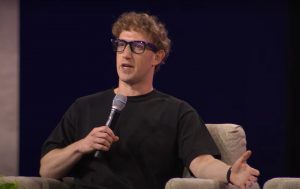Piracy, Counterfeiting, Web Domains & the Evolution of Property Rights
It has long been obvious that suing copyright infringers and/or counterfeit goods purveyors one-by-one is a losing strategy in the era of Internet time and geographic reach, so efforts to protect intellectual property are increasingly focused on disrupting the infringers/counterfeiters Internet presence. As noted before in this space, the Feds are aggressively pursuing this option (see here), and the proposed S. 3804 would create additional tools (here, here and here).![]()
Content creators are also pursuing private enforcement options, persuading others in the Internet ecosystem, such as domain name registrars, on-line ad sellers, and payment networks, to join the policing effort. S.3804 has provisions designed to encourage such private efforts, and these groups were, according to Hill rumor, involved in the drafting of the bill.
A recent CNet News story confirms this trend, with the headline “MasterCard willing to cut off pirate sites.” It says that “Lobbyists working for MasterCard have told trade groups from the entertainment sector that the credit card company is supportive of The Combating Online Infringement and Counterfeits Act,” and quotes a formal record industry confirmation, “MasterCard in particular deserves credit for its proactive approach to addressing rogue Web sites that dupe consumers . . .They have reached out to us and others in the entertainment community to forge what we think will be a productive and effective partnership.”
Of course, backlash has already begun, as some of the sites recently targeted by the government protest their innocence, with one of them showing the NYT emails indicating that some of the posted material on his site was sent by promotional departments of record companies. Many of the blocked sites are also back in business under slightly different names – for example, with an “info” suffix instead of a “com.”
There is nothing easy about this area of law and public policy. The Electronic Frontier Foundation protests “It’s a troubling situation where basically any Web site that the Department of Homeland Security doesn’t like and is convinced has too much infringing material on it can just disappear overnight.”
Excessive criminalization and the unlimited power of prosecutorial authority are of very real concern, but the EFF has a trees/forest blindness.
Destruction of property rights, or rejection of all methods of effectively defending them, is not the road to less government power and control. Quite the reverse. If creators cannot use property rights and markets to monetize their work, they will be forced to beg for government subsidies, and the system would rapidly evolve into total government control of expression.
Indeed, being a paranoid, I strongly suspect that EFF and its allies are well aware that a lack of effective protection of property rights will inevitably lead to a system dependent on government funding and favor; they regard this as a feature, not a bug.
Because the dilemma is indeed difficult, the idea of private actors working together to develop effective means of protecting property is promising, especially because the private actors have incentives to resist any outrageous demands by the content creators. MasterCard, for example, does not want to alienate either customers or banks, so it wants to be sure that it does not over-react. It also has strong incentives to attack Internet fraud, and the pirate/counterfeit sites are natural breeding grounds for other types of nefarious behavior.
It is a truism among property rights buffs that these rights evolve through the efforts of private actors reacting to new technological and economic facts on the ground, and that the law (and government) then follow, and this is another opportunity to let this process play out. Government should have a role in ensuring that the rules of the game are reasonable, the touch should be light indeed.
[Cross-posted at Digital Society]
A message from John Furrier, co-founder of SiliconANGLE:
Your vote of support is important to us and it helps us keep the content FREE.
One click below supports our mission to provide free, deep, and relevant content.
Join our community on YouTube
Join the community that includes more than 15,000 #CubeAlumni experts, including Amazon.com CEO Andy Jassy, Dell Technologies founder and CEO Michael Dell, Intel CEO Pat Gelsinger, and many more luminaries and experts.
THANK YOU













